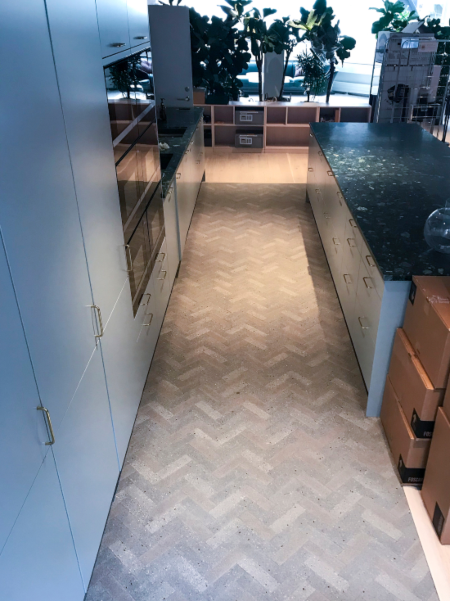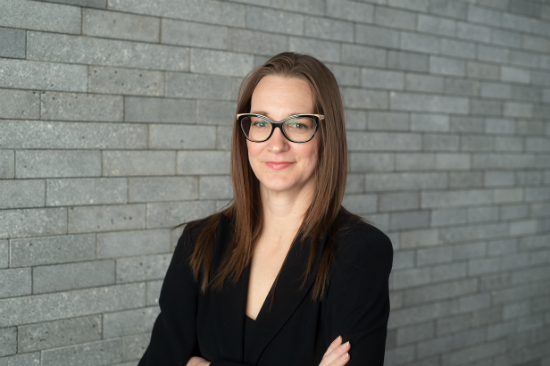
Biomason Raises $65 Million to Advance Biocement Technology

Biomason of Research Triangle Park has raised $65 million in Series C financing to accelerate development of its technology for growing biocement with bacteria.
The funding round was led by 2150, a European firm that invests in new construction technologies for more environmentally sustainable cities, with participation from Celesta Capital, Hartree Partners, and others, including current shareholders Novo Holdings and Martin Marietta Materials.
“This investment marks an important milestone in the wide-scale adoption and commercialization of biocement technology,” said Ginger Krieg Dosier, co-founder and chief executive officer of Biomason. “This is a commercially driven, strategic round for Biomason, and we are honored to work with new and current shareholders to take the next steps for our company.
“We are accelerating our technology platforms to enable broader applications in the concrete value chain, including ready mix technology. We are excited to work alongside 2150 as the leading impact investor solving the biggest climate challenges in the built environment," Krieg Dosier said.
Reduced carbon emissions
Biomason aims to eliminate 25% of global carbon emissions from the concrete industry by 2030.

Its patented technology, inspired by nature’s production of coral, uses bacteria to create calcium carbonate that stitches together grains of aggregate or sand at ambient temperatures. Biocement is a planet-friendlier alternative to traditional Portland cement, which requires high energy to bake in a hot kiln and emits substantial carbon dioxide into the air.
"We are excited to lead the investment into Biomason, which we have been following in recent years, because of the world-class team and the fact that their biocement product is ready to be scaled across the globe,” said Christian Jølck, founding partner at 2150. “When we started 2150 . . . we had not imagined then that it was possible to harness nature and combine it with human technology by using bacteria to solve one of our biggest climate challenges -- the cement industry.”
Portland cement production accounts for over 8% of global carbon emissions, four times more than the aviation industry.
“Since the invention of Portland cement in 1824, it has remained the key ingredient used in concrete, and therefore the most ubiquitous globally,” said Michael Marks, founding general partner at Celesta Capital. “However, it is a commodity product with fierce price competition and high environmental costs. Celesta is thrilled to invest in Biomason—a company that uses pioneering technology and processes to help reduce the construction industry’s climate impact.”
Concrete is the second-most consumed material in the world after water. As the global building stock is expected to double by 2060, it is vital to replace carbon-emitting materials with proven alternatives, according to Biomason.
“Novo Holdings truly believes that biotechnology has the potential to become a spearhead for the green transition of society,” said Anders Bendsen Spohr, senior partner, principal investments, at Novo Holdings. “Our mission is to make a growing and positive impact on health, science, and society, and our investment in Biomason reflects our vision that biology can create much more sustainable solutions in industry and construction.”
Employee growth tops 100
This year, Biomason celebrates 10 years as the pioneer of biocement technology and remains the only company in the world using biology to make concrete.

Krieg Dosier’s conviction in the ability to grow cement has helped Biomason evolve from an experiment in her second bedroom to a 100-plus person company.
The company has installed biocement-powered products throughout North America and Europe, successfully demonstrated novel biocement applications in collaboration with the Defense Advanced Research Projects Agency, a research and development arm of the U.S. Department of Defense, and entered into agreements with global companies, including H&M Group and IBF to further scale biocement applications.
“We are on a direct flight to revolutionize the cement industry,” said Krieg Dosier. “This financing not only supports our ever-growing team, technology platform, and continued commercialization, it also proves that our vision to end the world’s dependence on carbon-emitting construction materials is within reach.”
During its formative years Biomason was supported by the North Carolina Biotechnology Center. The company received three loans from the Biotech Center totaling $800,000, helping it raise subsequent venture capital. The company’s first headquarters office was also in NCBiotech’s RTP headquarters building.
